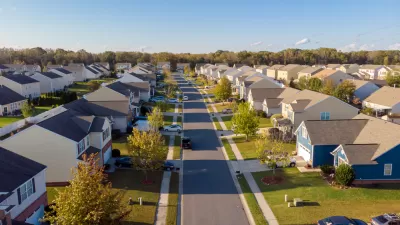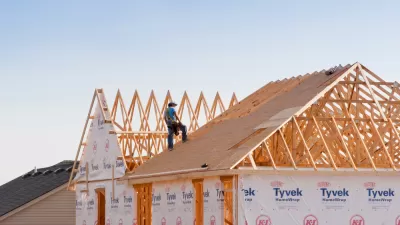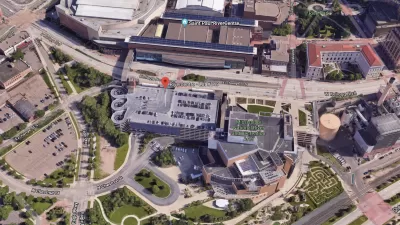Stephen Smith takes a look at land use regulations in Brazil, where developers are still required to make room for cars that its growing cities can't support.
Brazil is no stranger to the challenges facing global cities today. Simultaneously hailed for innovations like bus rapid transit and lamented for its squalid favelas, the country sits at the bleeding edge of urban policy.
And so it comes as a surprise that throughout the nation, Brazil's traffic woes are worsened by seemingly anachronistic minimum parking requirements. As Smith explains, "A few decades ago Brazil joined a number of developing nations in adopting American-style minimum parking requirements for new developments... While planners seek to make sure everyone who has a car has some place to park it, critics contend that rather than simply making room for those who will inevitably drive, the policies are actively encouraging motorization."
Brazil owes its auto-oriented policy in part to the legacy of modernist urban design, beginning in the middle of the last century. Planned in that tradition, the capital city of Brasília "eschewed the pedestrian-and-transit-oriented trappings of other cities. The city was originally envisioned... without sidewalks or stoplights on the main boulevards, and the abundance of cloverleaf intersections testifies to the city's original planners favoring of motor traffic over all else."
But the requirements do not reflect the reality of already-overtaxed streets in cities throughout Brazil, where critics argue that the needless parking takes away precious space and constrains better forms of growth. One commercial developer in São Paulo said, of developers' feelings about the requirements, "No, they are not happy, but it is what it is. It's the status quo, and no one questions it anymore."
Thanks to Stephen J. Smith
FULL STORY: As Traffic Snarls Brazil's Cities, Officials Plan For More Cars

Planetizen Federal Action Tracker
A weekly monitor of how Trump’s orders and actions are impacting planners and planning in America.

Maui's Vacation Rental Debate Turns Ugly
Verbal attacks, misinformation campaigns and fistfights plague a high-stakes debate to convert thousands of vacation rentals into long-term housing.

San Francisco Suspends Traffic Calming Amidst Record Deaths
Citing “a challenging fiscal landscape,” the city will cease the program on the heels of 42 traffic deaths, including 24 pedestrians.

Defunct Pittsburgh Power Plant to Become Residential Tower
A decommissioned steam heat plant will be redeveloped into almost 100 affordable housing units.

Trump Prompts Restructuring of Transportation Research Board in “Unprecedented Overreach”
The TRB has eliminated more than half of its committees including those focused on climate, equity, and cities.

Amtrak Rolls Out New Orleans to Alabama “Mardi Gras” Train
The new service will operate morning and evening departures between Mobile and New Orleans.
Urban Design for Planners 1: Software Tools
This six-course series explores essential urban design concepts using open source software and equips planners with the tools they need to participate fully in the urban design process.
Planning for Universal Design
Learn the tools for implementing Universal Design in planning regulations.
Heyer Gruel & Associates PA
JM Goldson LLC
Custer County Colorado
City of Camden Redevelopment Agency
City of Astoria
Transportation Research & Education Center (TREC) at Portland State University
Jefferson Parish Government
Camden Redevelopment Agency
City of Claremont





























